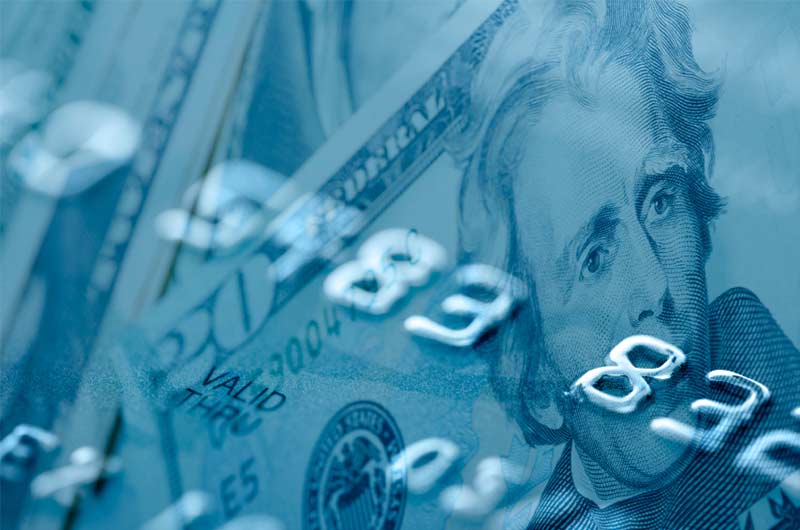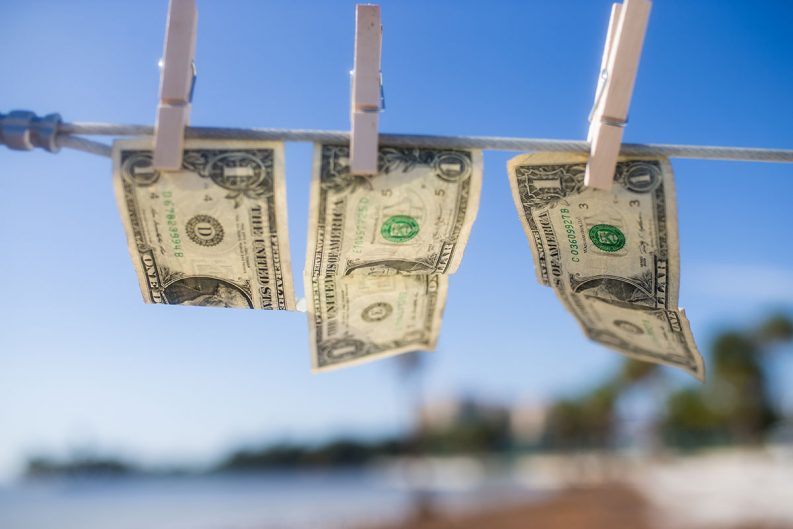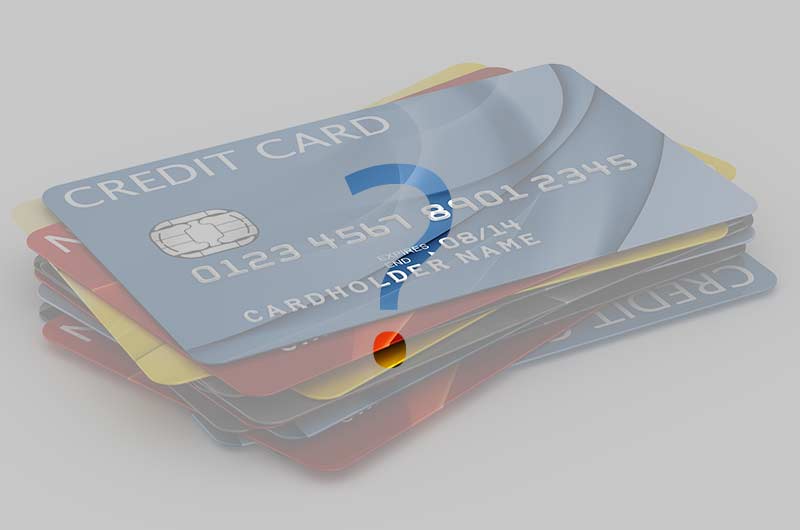Do Secured Credit Cards Charge Interest?
Secured credit cards are excellent credit building opportunities. They allow you to boost your credit score and practice smart money habits without worrying about debt. Like any other credit card, secured cards have fees and expenses which you need to know. Let's take a closer look at secured card interest rates and what you can do to avoid them.

Secured Credit Cards Charge Interest--But It's Avoidable
The simple answer to "do secured credit cards charge interest?" is yes, they do. However, you can avoid that interest by paying off your balance each month within the grace period. This is true for any credit card that offers a grace period, usually ranging from 21 to 25 days.
Your card's annual percentage rate breaks down to a daily periodic rate. Your credit card debt gets charged a small amount of interest every day you carry a balance. If you pay off the balance within the grace period, that daily interest goes away for that month. If not, you will be charged interest based on balance owed on the card (your unpaid transactions + fees).
Why Do I Have to Pay Interest on My Own Money?
When you open a secured credit card, you provide a security deposit that acts as the credit line for the card. If you deposit $1,000, you will have a $1,000 line of credit. Any purchases you make with the card will be deducted from that available balance, as will the fees for that particular card. You'll receive a bill with a minimum payment amount and total balance due, and you can choose what you want to pay.
With this in mind, you may wonder why you have to pay interest to borrow your own money. This is because the card issuer has to make something. They report your payments to the credit bureaus every month to help you build credit. In exchange, they get certain fees and any interest you accrue on the card. If you pay off your balance each month, you don't have to pay interest. The only costs you will incur will be the fees on the card, which vary from one card to the next.
How Secured Card APRs Compare to Unsecured Credit Card APRs
Typically, secured cards are targeted for adults with bad credit, limited credit, or no credit history. Other cards that target the same audience tend to have high interest rates, but that is not the case for many secured cards. The average credit card APR across all categories is currently 15.58% to 22.83%. The secured credit cards featured on Secured Card Choice currently have APRs ranging from 9.99% to 18.90%.
With a standard credit card for bad credit, the high interest rate is designed to reduce the issuer's risk of losing money. They issue a small line of credit using their own money and hope that they get repaid in the end. The interest payments from other customers help cover the loss they may experience when someone defaults on their account.
With a secured credit card, there is no risk for the issuer. The cardholder provides the money for the line of credit. If they default on the account, the card issuer isn't out any money. This allows them to charge lower interest rates because they have less to cover in the event of a loss.
Types of Credit Card APR
A credit card can have more than one annual percentage rate (APR). Some transactions carry a different interest rate than others. Here are some common types of APR for secured and unsecured credit cards:- Purchase APR: The standard interest rate on the card for most purchases.
- Introductory APR: A temporary interest rate when the account is opened. The standard introductory APR is 0% for 6-12 months, but some cards have different rates or timeframes.
- Penalty APR: This is a special interest rate charged after an account is 60+ days delinquent. It is usually higher than the purchase APR, but it is easy to avoid with on-time payments.
- Balance Transfer APR: This is interest on a transferred balance. If you use a credit card to pay off another credit card, you will most likely pay a balance transfer fee, plus a balance transfer APR. Some cards offer 0% balance transfer APRs, but only for a short period of time.
- Cash Advance APR: Interest charged on cash advances (money withdrawn from the ATM). Cash advance APRs are normally quite high, so it's best to reserve cash advances strictly for emergency situations.
These interest rates may be fixed or variable. A fixed APR does not change, but a variable APR can increase/decrease due to changes in the economy. Many card issuers set variable APRs based on the prime rate from the Federal Reserve. For instance, your card's variable APR may be the prime rate plus 3%. If the prime rate goes from 15% to 15.5%, your variable APR would increase from 18% to 18.5%.
Fixed APRs can change with time, but your card issuer must notify you before the change occurs. Also note that the fixed purchase APR may be overridden by another APR on the card. If you don't make a payment for two months, your penalty APR would kick in, regardless of what the fixed APR may be.
Other Fees for Secured Credit Cards
Secured card interest rates are avoidable if you pay off your entire balance on time. Other fees on the card may or may not be avoidable, depending on the terms of agreement. Here are some other expenses to keep in mind when getting a secured credit card:
- Annual Fee: Charged when you open the account, and once per year to follow. Some cards offer no annual fee for the first year or no annual fee whatsoever.
- Monthly Fee: Charged each month the account is open.
- ATM Fee or Cash Advance Fee: Charged when checking a balance at the ATM or withdrawing money from the account.
- Balance Transfer Fee: A flat fee charged in addition for transferring a balance from one card to another, in addition to the balance transfer APR.
- Late Fee: Charged if the minimum monthly payment is not made by the due date.
- Foreign Transaction Fee: When the transaction takes place overseas or with a foreign merchant, usually 1% to 3%.
- Card Replacement Fee: Charged when you request a replacement credit card. Many issuers waive this fee.
- Returned Payment Fee: Charged if your credit card payment is declined.
- Over-limit Fee: Charged if you make a purchase that exceeds your available line of credit. Many cards will decline these transactions, but some will permit them at the expense of an additional fee.
- Transaction Fee: Charged every time you make a transaction, no matter how big or small it is.
Review the card terms closely before applying for any credit card. There will inevitably be expenses on the card, but some may align better with your spending habits than others. Find a card with manageable fees that suits your overall needs.
How to Lower Your Secured Card Interest Rate
You don't have to live with a high interest rate forever. In fact, 69% of cardholders receive a lower interest rate just by asking. The key is to practice smart credit card habits and ask at the right time. Follow these steps to achieve a lower secured card APR:
- Make your card payments on time every month. Ideally, you should pay off your balance in full each month to avoid interest.
- Actively use your secured credit card. Instead of using your debit card for purchases, use your secured card. Then pay off your balance with the money you would have used from your bank account.
- Request a lower interest rate after 6 months of on-time payments. Simply call your card issuer and ask for a lower interest rate. If your request is declined, wait another 3-6 months to contact them again.
- Accept a lower interest offer from your card provider. Many card issuers will automatically evaluate accounts and offer lower interest rates as a reward for on-time payments. That's why the steps above are so important. You may not need to put any effort into getting a lower APR.
- Consider switching to a credit card with lower interest. After 6-12 months of good payment history on your card, you may be ready to switch to a different secured card or upgrade to an unsecured card. Be careful during this transition. Evaluate the card terms closely so you're aware of any fees you may incur along the way.
- Continue practicing smart credit card habits. Become a transactor, not a revolver. Pay off your balance every month within your grace period, and repeat the process to build your credit score. This will open the door to even better credit card offers in the future.
If you don't receive a lower interest rate right away, do not get discouraged. Positive changes don't always happen overnight. Persistent and diligent payments will pay off, and you'll feel relieved with reduced debt. Check out the secured card offers available to you, courtesy of Secured Card Choice.


